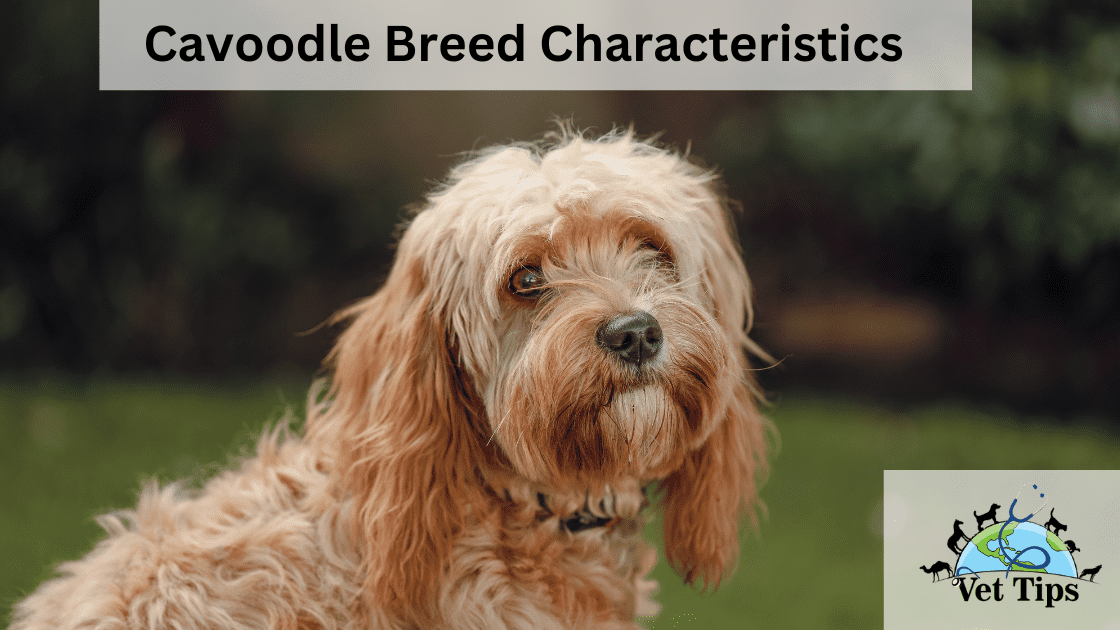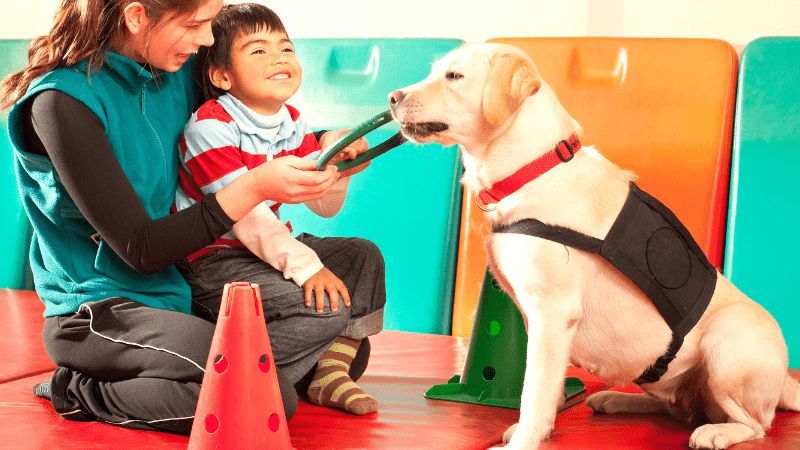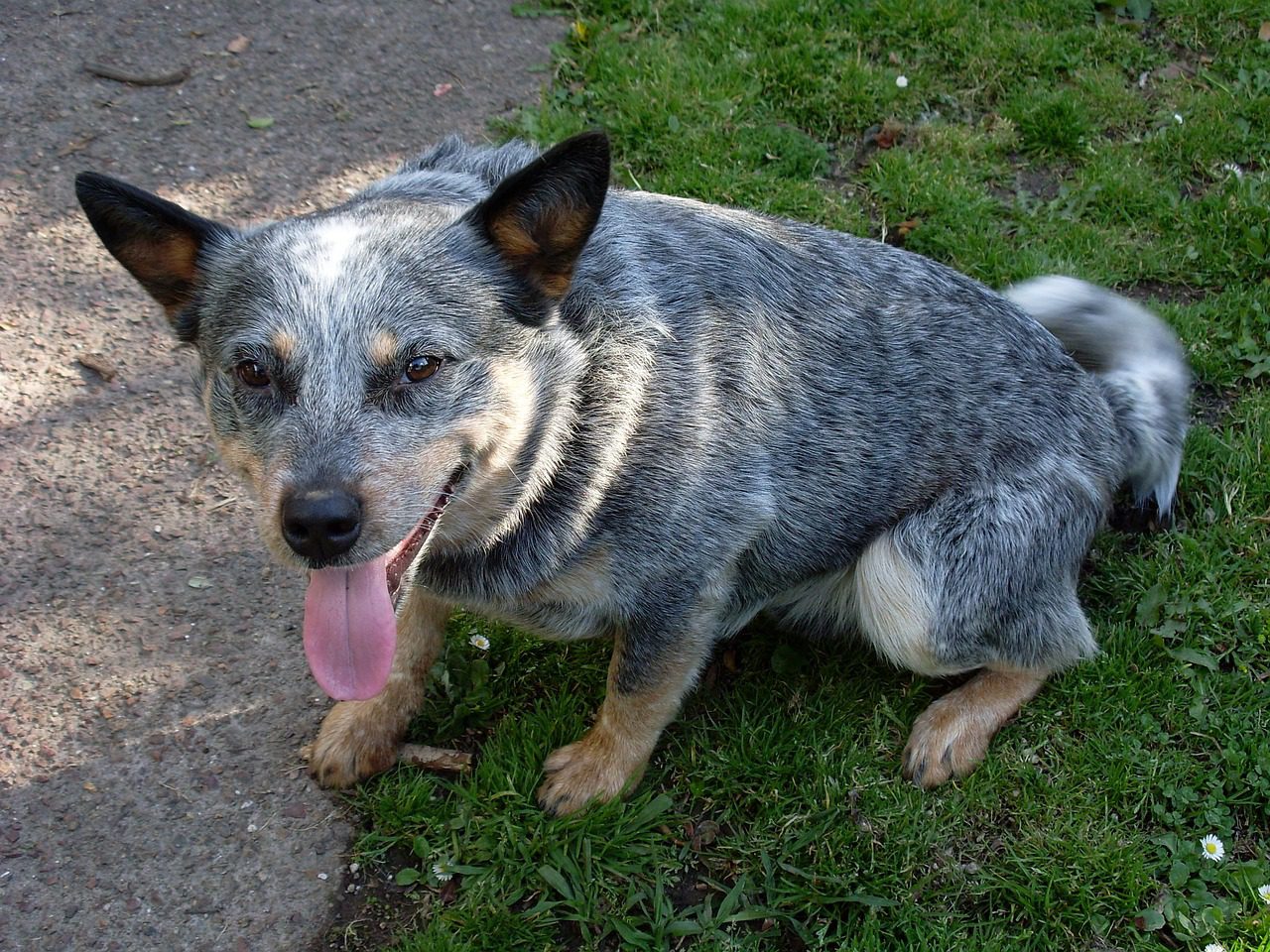If you’re looking for a dog that’s smart, intelligent, and gorgeous, a Cavoodle (also called a Cavapoo or Cavadoodle), might just be the right option for you. Here we will discuss Cavoodle Breed Characteristics in detail. Continue reading to learn more about this cute breed.
Cavoodle
This mix breed between a poodle (miniature or toy) and the Cavalier Kings Charles Spaniel is considered to be the most popular designer dog breeds, for muti reasons. If you’re thinking about getting a Cavoodle or if you’re just interested in learning what makes this breed so popular, stick around with us. We will provide you with everything you need to know about the Cavoodle.
Cavoodle Breed Characteristics
- Size: Miniature/small
- Lifespan: 10-13 years
- Energy level: medium/high
- Breed group: toy dog/designer dog
- Breed classification: known as a group of crossbred dogs called ‘oodles’ or poodle-crosses.
- Height: 30-35 cm
- Recommended for: Families
- Maintenance Level: Medium
- Weight:5-12 kg
- Temperament: smart, loving, intelligent
- Hypoallergenic: yes
- Colors: Gold, tan, cream, black, brown – with or without markings in these colors.
- Origin: Australia
Cavoodle Breed Characteristics at a Glance
- Shedding: Very Low
- The exercise required: Low
Cavoodle diet/Food
It is very important that you feed your Cavoodle a diet that is age-appropriate and meets all their nutritional needs.
Most Cavoodle are not fussy eaters by nature, but some may be fast eaters. Sticking to the same food your dog has already eating in the past is important to prevent gastric problems that can be serious in young puppies, but it can also happen if the puppy is accustomed to eating. Being a relatively small breed of dog, they are usually cheaper to feed, so if you choose dry feeding, stick with premium dry food as cuddles are usually a small amount at a time.
A small amount is needed to provide all the nutrients they need. This is especially important for growing puppies where for an extra couple of dollars more per week, you can provide your Cavoodle with a complete diet, including a premium dry food rather than a lower grade dry food.
Always consult a Cavoodle breeder or previous owner about what they are feeding the dog and how many meals they eat each day so you can keep your new dog on the same diet. If your doctor has completely recommended a different brand of food or a different diet, a gradual change in their diet is much better than a sudden change.
Do not feed them anything without dog food or anything which is not recommended.
Cavoodle Grooming
If your Cavoodle has a hair more like its parent breed, Cavalier Kings Charles spaniel, it will need regular baths. Bath them every couple of weeks, along with brushing to keep them clean and neat.
If his hair is more like another parent breed, i.e., poodle breed, only brushing will be sufficient, but brushing must be more frequent, daily brushing to keep them clean. Brushing needs to go up to the skin or mats problem may occur. Cavoodle must be groomed every four to six weeks. You also trim the hair so that brushing may be easy.
Another common grooming issue with Cavoodles dogs is tearing stains, which is common in them and also common in parent breeds. Washing the eyes and the area under or around eyes daily is the best way to keep this problem away.
Cavoodle temperament, personality, characteristics.
The Cavoodle seems to inherit a love for people from the parents Cavalier, which was originally meant to be a companion dog. Cavoodles are less highly strung than a miniature Poodle but have inherited their intelligence and sense of loyalty. Cavoodles are slightly smaller than a small poodle, but they have inherited a sense of intelligence and loyalty from them. This blend makes a Cavoodle great and soft with kids, and they fit into small living quarters.
Born with large brows, with long, soft, floppy ears and a compact round face, many Cavoodle will remain cute even when they are adults.
Cavoodles are gentle and friendly, and their sociable nature means they usually don’t know any strangers. Yet, they cherish their greatest love (and much more) with their families.
They are also extremely loyal and value human companionship. Even more friendly than other dogs. They quickly find themselves packed into your home and never get clingy. Immediately bring a Cavoodle into the house. Then don’t be surprised if you have a sharp attitude everywhere behind you.
Ideal environment
Cavoodles can adapt to almost any environment and will grow up in a house, a small apartment, or a condo, and they will be happy within the city or country setting.
Because Cavoodle is directly related to Cavalier Kings Charles Spaniel, a notorious lap dog, so, he will happily spend the day on the couch. This means they don’t take up much space, and you don’t necessarily need a yard.
However, they also have poodle genetics, and poodles are quite athletic dogs. If the Cavoodles do not have a courtyard, they should take one or two short walks a day. Hardly enough around the one block.If your Cavoodle has a yard, it must be fenced off, and they will never be allowed out of the strip during the walk.
Thanks to his relationship with Cavalier Kings Charles spaniel, Cavoodle harbor some hunting instincts (they may be buried deeper, but they are still there), and it is likely that capture something if it smells interesting. This will happen regardless of how well you think your Cavoodle is trained.
Training a Cavoodle: (Cavoodle Breed Characteristics)
Since they’re always so eager to please “a trait they’ve inherited from the poodle,” you’ll likely find out soon that your Cavoodle is a highly trainable and obedient dog.They can learn basic commands fairly easily, and you may also teach them fun party tricks and selective games, especially if you start while they’re still a very young age or puppies.
The easy rule to train a Cavoodle is to be determined and remain positive. Match their excitement by admiring each success with great eagerness (and their favorite treats). Keep the sessions short, entertaining, and frequent with fun. Repetition of sessions will be your best friend in training your dog.
Health Care
Mixed-breed dogs are often less likely to develop genetic diseases than their purebred parents. This means that although there is no guarantee that your Cavoodle will be in perfect health, there is a better chance that it will not be affected by genetic factors that are passed down from generation to generation.
Of course, the Cavoodle are still at risk because of these health problems that endanger their parents. So, we have to look at the Cavalier Kings Charles spaniel and poodle to find out what the Cavoodle dogs are all about.
Although toy poodles are generally healthy and having good, responsible breeding, they also have some problems.
Health issues
Unfortunately, Cavalier King Charles Spaniels suffers from many health problems. Their biggest health risks usually include
- Eye diseases
- Luxating patellas (dislocating knee caps)
- Allergic skin diseases
- Cataracts
- Epilepsy
- Heart valve problems
- Ear infections
- Neurological disorders
Early screening can help you catch most of these problems. They are treatable under the supervision of a veterinarian.
Common questions of pet parents about Cavoodle: (Cavoodle Breed Characteristics)
How difficult is it to train Cavoodles?
They are very intelligent, which makes their training easy. However, they can also show some freedom.
Is Cavoodles Suitable for Families?
They grow up as family pets, good dogs, and loyal companions.
How much company do Cavoodles need?
This generation may be suffering from separation and anxiety problems, and they love the family, which is very close to home.
Is Cavoodles a Hypoallergenic Dog Breed?
Yes, they are hypoallergenic.
Are Cavoodles adjust with other dogs and animals?
From other dogs to cats to rabbits, your Cavoodles will befriend everyone.
Why do Cavoodles need coats and grooming?
They are moderate- to high-maintenance breed. Who needs to be brushed weekly and trimmed every six weeks. They have long, long hair that is golden, tan, cream, black, or brown, with or without markings in the same colours.
Do Cavoodles bark?
Cavoodles often bark, so expect to have a lot of chats with your other pets or dogs.
Fun Fact: Cavoodles are the most popular Crossbreed Dogs in Australia!
For similar files like this click here.
For source file click here.





One thought on “Cavoodle Breed Characteristics”